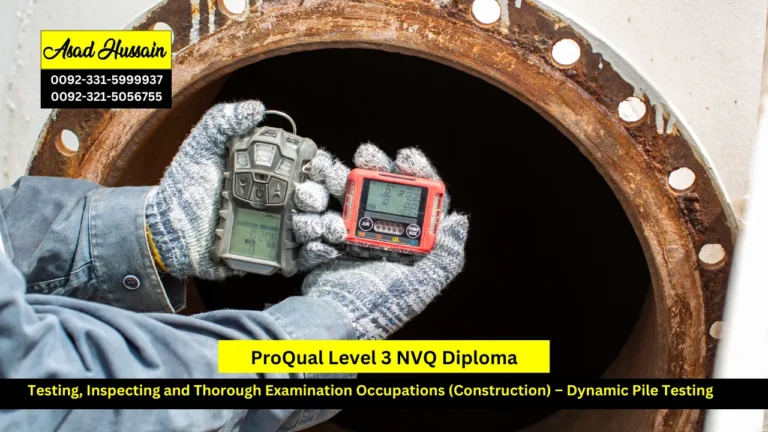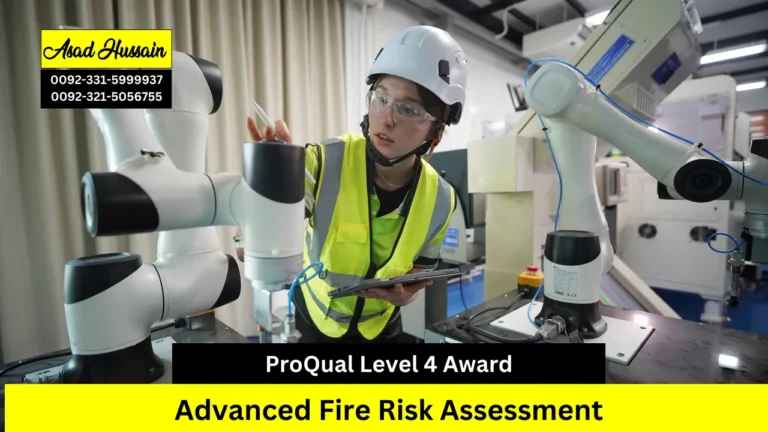The ProQual Level 3 Diploma in Engineering Surveying (Land Surveying) is designed for individuals working or aspiring to work in surveying and construction-related environments. This vocational programme focuses on developing practical surveying skills and technical knowledge required for land and engineering surveying activities. It provides learners with a strong foundation in measurement techniques, site data collection, and the use of surveying equipment within real workplace settings. As the course is not Ofqual regulated, it offers flexibility while remaining aligned with industry practices. Learners gain hands-on competence that supports accuracy, safety, and efficiency in surveying operations across various projects.
This course emphasises work-based learning, allowing learners to demonstrate competence through practical tasks and professional evidence rather than formal examinations. Key areas include setting out, data recording, interpreting survey information, and maintaining surveying standards on site. Learners also develop an understanding of health, safety, and environmental considerations relevant to engineering surveying activities. The programme supports professional development and aligns well with recognised industry certifications and vocational diplomas in construction, civil engineering support, site supervision, and technical operations, helping learners strengthen their professional profile within the surveying and construction sectors.
ProQual Level 3 Diploma in Engineering Surveying (Land Surveying) provides a structured and practical approach for building confidence and capability in land surveying roles. It is suitable for those involved in site operations, infrastructure projects, and engineering works where accurate surveying is essential. The course supports skill recognition for technicians, survey assistants, and site personnel seeking formal acknowledgement of their practical expertise. By combining applied surveying techniques with workplace evidence, the diploma enhances professional credibility and complements a range of relevant certifications and diplomas commonly valued across engineering, construction, and infrastructure industries.
Program Highlights
Study Units
The ProQual Level 3 Diploma in Engineering Surveying (Land Surveying) candidates must complete the 5 Mandatory units.
- Introduction to Land Surveying
- Understanding Levelling in Surveying
- Using a Total Station in Surveying
- Using Global Navigation Satellite Systems
- Setting out and other Construction Survey Technologies
Entry Requirements
To ensure learners can effectively engage with the technical and practical demands of this vocational programme, applicants are expected to meet the following entry requirements:
- Age Requirement: Learners should normally be 18 years of age or above at the time of enrolment, as the course involves practical surveying activities and workplace responsibilities.
- Educational Background: Candidates should have a basic educational foundation supported by relevant diplomas or certificates in construction, civil engineering, engineering operations, surveying support, site engineering, or related technical fields. Equivalent vocational certificates or industry-recognised training are also acceptable.
- Language Proficiency: Learners must have a reasonable level of English language proficiency to understand technical instructions, complete documentation, and communicate effectively within a work-based environment.
- Work Experience: Prior experience in construction, engineering, surveying assistance, site operations, or a related technical role is preferred, as the programme is assessed through practical workplace evidence.
Overall, these entry requirements are designed to ensure that learners have the foundational knowledge, practical exposure, and communication skills needed to successfully complete the course and benefit fully from the programme.
Learning Outcomes
Upon successful completion of the ProQual Level 3 Diploma in Engineering Surveying (Land Surveying), learners will be able to:
Introduction to Land Surveying
- Understand the basic principles and purposes of land surveying in engineering and construction.
- Identify different types of surveys and the equipment used.
- Recognise key roles and responsibilities of a land surveyor.
- Demonstrate awareness of health, safety, and legal considerations in survey work.
Understanding Levelling in Surveying
- Explain the concepts of height measurement, datum levels, and benchmarks.
- Perform levelling procedures using standard levelling equipment.
- Accurately record, calculate, and interpret levelling data.
- Apply levelling techniques in a construction or engineering context.
Using a Total Station in Surveying
- Understand the functions and capabilities of a total station instrument.
- Set up, calibrate, and operate a total station on site.
- Collect, transfer, and process survey data using digital tools.
- Perform setting out and coordinate measurements with precision.
Using Global Navigation Satellite Systems (GNSS)
- Gain knowledge of satellite-based positioning systems and their surveying applications.
- Operate GNSS equipment to capture accurate geospatial data.
- Understand post-processing and correction methods for GNSS data.
- Integrate GNSS outputs into topographical and construction surveys.
Setting Out and Other Construction Survey Technologies
- Apply setting out techniques for construction features including boundaries, roads, and structures.
- Interpret engineering drawings and transfer measurements to physical locations on site.
- Understand modern surveying technologies such as laser scanning and UAVs.
- Monitor accuracy and tolerances during construction activities using advanced survey tools.
Target Audience
This course is designed for individuals who are involved in, or aiming to build competence within, engineering and land surveying roles where practical skills, accuracy, and site-based knowledge are essential.
- Aspiring land surveyors seeking to develop practical surveying skills for construction and infrastructure projects
- Surveying assistants and technicians involved in site measurements, data collection, and setting-out activities
- Construction and civil engineering personnel working closely with surveying teams on site
- Site engineers and technical staff responsible for accurate layout, levels, and measurement control
- Infrastructure and utilities workers requiring reliable surveying support for roads, pipelines, and structural works
- Professionals seeking formal recognition of hands-on surveying experience within a vocational framework
Overall, this programme is ideal for individuals looking to strengthen practical surveying capability and professional credibility through the ProQual Level 3 Diploma in Engineering Surveying (Land Surveying).







